What Is Stevia Extract?
The utilization of Stevia extract, an organic sweetening agent derived from the foliage of the Stevia rebaudiana plant, has garnered considerable attention within the realms of both food and health sectors. It is primarily due to its attribute of providing a sweet taste devoid of caloric content and its perceived potential to promote health.
However, the journey of this plant extract from its natural habitat to our dining tables has been fascinating, marked by scientific discovery, regulatory hurdles, and shifting perceptions about its utility and safety.
Pure Stevia Extract Specifications
Pure Stevia Extract can come in several possible purities, typically from 80% to 99%.
| Type | Food additives, sweetener |
| Appearance | White, crystalline powder |
| Content | Steviol Glycosides |
| Purity | 95% – 98% |
| Particle Size | 80 – 100 mesh |
| Certifications | FDA Approved, GRAS, Halal, Kosher |
| Other Ingredient | None |
| Solvent | Ethanol & Water |
| Water Content | ≤ 5% |
| Test Method | HPLC |
| MOQ (minimum order quantity) | 1kg |
| Sample | Available (10-20g/bag) |
| OEM Service | Available, such as capsules, tablets, pills, etc. |
| ODM Service | Available |
| Private Label | Available |
| Contract Manufacturing | Available |
Stevia Extract Powder Source
Stevia extract powder is sourced from the Stevia rebaudiana plant, a perennial shrub native to South America. The sweetness of Stevia is derived from the leaves of the plant, which possess a notable abundance of steviol glycosides. These compounds exhibit a sweetness level that surpasses sugar by up to 300 times. The leaves are harvested, dried, and then subjected to water extraction. The resulting liquid is purified and dried to produce stevia extract powder, an intensely sweet white, crystalline powder.
Stevia Extract Manufacturing Process
The manufacturing process for stevia extract involves several steps to isolate and purify the sweet compounds, called steviol glycosides, from the stevia plant leaves.
- Stevia leaves are collected from the plant.
- The leaves are dried to reduce moisture.
- Steviol glycosides are separated from the leaves through water, ethanol, or CO2 extraction.
- The extracted liquid is filtered to remove plant particles.
- The crude extract is refined using crystallization or chromatography.
- Color-producing compounds are removed, enhancing the extract’s appearance.
- The purified extract is concentrated for potency.
- The concentrated extract is dried into powder or liquid form.
- Quality control checks are conducted to ensure purity and sweetness.
- The final extract is packaged and distributed to manufacturers as a natural sweetener.

Natural Stevia Sweetener Benefits
Stevia extract powder offers several health benefits. Firstly, it is a zero-calorie sweetener, making it a suitable choice for those looking to reduce their calorie intake or manage their weight. Unlike artificial sweeteners, Stevia is a natural product that appeals to health-conscious consumers.
- Zero-Calorie Sweetener
Stevia extract powder contains no calories, making it an excellent choice for individuals aiming to reduce their calorie intake or manage their weight.
- Natural Product
Unlike many artificial sweeteners, Stevia is derived from a plant, making it a natural sweetener that appeals to health-conscious consumers.
- Safe for Diabetics
Stevia, as a non-nutritive sweetener, has been found to have little to no effect on blood glucose levels, thus rendering it a viable and safe option for individuals who have diabetes.
- The potential effects on insulin sensitivity and glucose metabolism
Multiple studies have provided evidence suggesting that Stevia may benefit the sensitivity of insulin and glucose metabolism.
- Antioxidant Properties
The antioxidant properties of Stevia have been identified, demonstrating its potential to mitigate oxidative damage caused by free radicals within the body.
- Potential Anti-Inflammatory and Anti-Cancer Properties
Preliminary studies suggest that Stevia may have anti-inflammatory and anti-cancer properties, although more research is needed in these areas.
Pure Stevia Extract Application Areas
Stevia extract powder has a wide range of applications. It is commonly used as a sweetener in beverages such as tea, coffee, and baked goods. It also produces sugar-free or reduced-sugar products, such as candies, chocolates, and soft drinks.
- Hot and Cold Beverages
- Baked Goods
- Confectionery
- Dairy Products
- Sauces and Dressings
- Pharmaceutical Products
- Dietary Supplements
- Health and Wellness Products
Stevia Extract Powder Dosage
The optimal dosage of stevia extract powder may differ based on the particular product and its concentration of steviol glycosides. Nevertheless, the WHO has established an acceptable daily intake (ADI) for steviol glycosides, which amounts to a maximum of 4mg per kg of an individual’s body weight.
Where To Buy Stevia Extract Powder?
Nutri Avenue is a reputable supplier of Stevia Extract Powder. We are known for providing high-quality, natural sweeteners derived from the Stevia rebaudiana plant, contributing to healthier dietary choices for consumers worldwide. Trust Nutri Avenue for your Stevia Extract Powder needs.
FAQs
Yes, Stevia Extract Powder and Stevia Natural Sweetener refer to the same product. Both are derived from the leaves of the Stevia rebaudiana plant and are used as zero-calorie, natural sweeteners. The terms are often used interchangeably in the food and health industry.

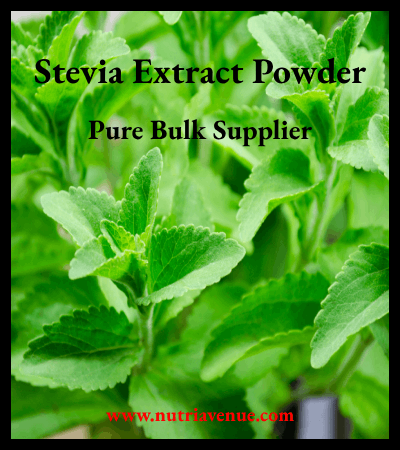
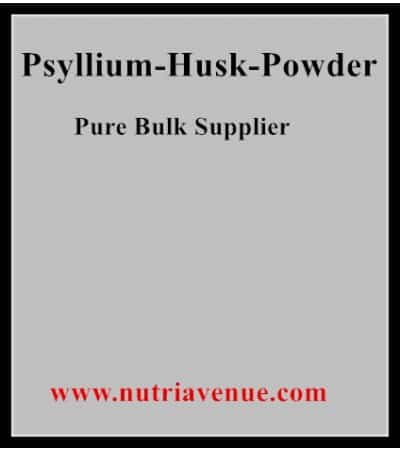
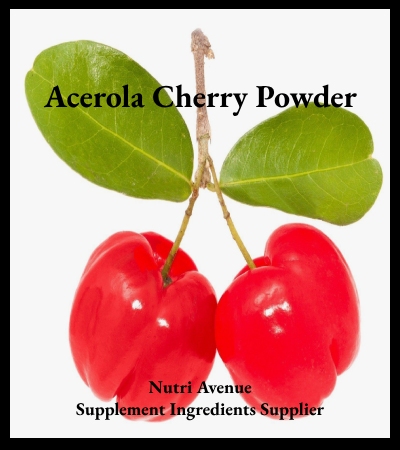
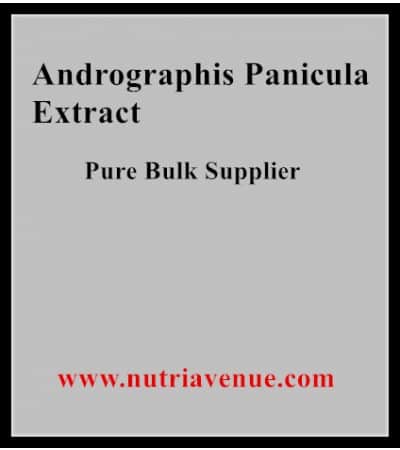
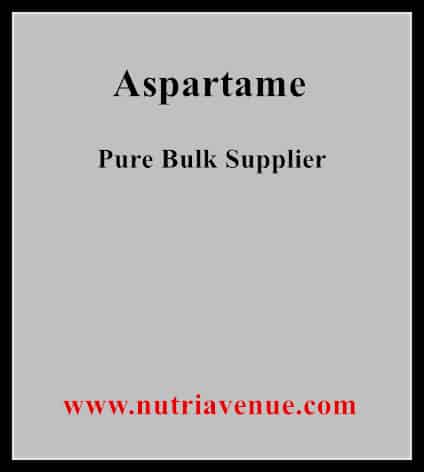

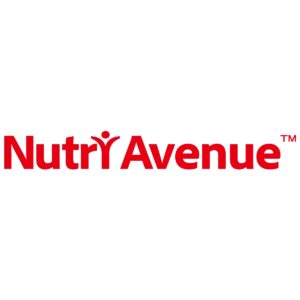



Reviews
There are no reviews yet.